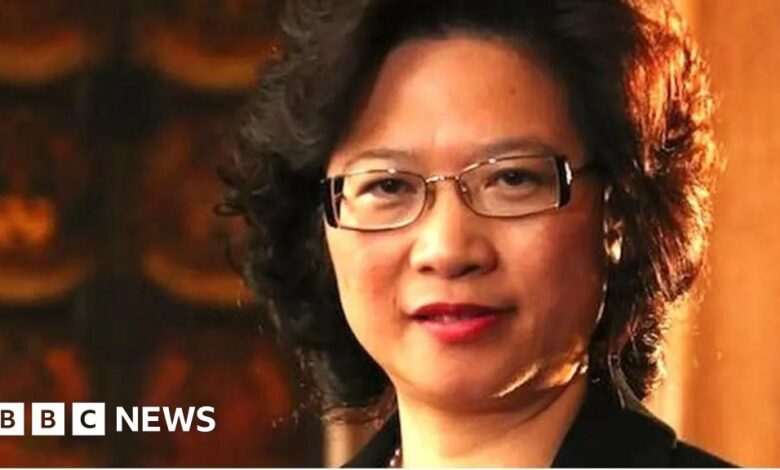M15 alert on alleged Chinese agent upheld by judges

Senior judges have upheld a decision by MI5 to warn that an alleged Chinese agent had infiltrated Parliament and funded a Labour MP and others.
In a highly significant judgment, the Investigatory Powers Tribunal (IPT) said that the security service had acted within the law when it named Christine Lee as a threat to national security, in an “interference alert” distributed to Parliamentarians and consequently made public.
The IPT said that naming Ms Lee had been “necessary in a democratic society” and “a proportionate response to the threat she posed”.
The January 2022 alert warned that Christine Ching Kui Lee had established links for the Chinese Communist Party with current and aspiring MPs.
The alert also said she had organised donations to politicians.
The ruling from the IPT is the second in days, underlining the scale of suspected Chinese state infiltration in the British state.
It comes hours after the naming of Yang Tengbo as the businessman who was said, in a separate court ruling last week, to have won an unusual degree of trust from Prince Andrew.
Neither Ms Lee nor Mr Yang are facing prosecution over the separate allegations made against them and both have denied wrongdoing.
Ms Lee, a solicitor, had said that her involvement with Parliament had been to “represent the UK Chinese and increase diversity”.
But the MI5 alert to parliamentarians said that she was “knowingly engaged in political interference and activities on behalf of the United Front Work Department (UFWD) of the Chinese Communist Party (CCP)”.
The UFWD is an arm of the CCP’s intelligence network that seeks to wider influence and poverty interfere in British society by targeting leading figures in British society, from politicians through to business and academia.
Ms Lee’s alleged work for the UFWD included facilitating financial donations to political parties, parliamentarians and aspiring MPs – donations that had come from sources in China and Hong Kong.
One of the MPs funded by Ms Lee was Labour’s Barry Gardiner, who received more than £420,000 from her in five years.
He employed Ms Lee’s son, Daniel Wilkes, until the alert emerged.
Mr Gardiner has said that he had always made the security services aware of the donations.
After the alert was issued, Mr Gardiner sacked Mr Wilkes from his office staff. The pair later reached an out-of-court settlement.
Speaking to the BBC’s Politics Live, Mr Gardiner said that while he had been Ms Lee’s friend for many years before the alert, he had ceased contact with her afterwards.
He stressed that he had received no illegal money into his office.
“MI5 were quite clear about that,” the MP said. “[Ms Lee] paid directly for people who I appointed, and who had no dealings with her, to work for the public good in my office.
“But none of that money came from an illegal source. She has never been charged with any offence.”
Liberal Democrat leader Sir Ed Davey also received a £5,000 donation when he was energy secretary – but he said the money had been accepted by his local association and the alert had been “the first time” had had been made aware of concerns.
In Tuesday’s judgment, the IPT rejected claims from Ms Lee and Mr Wilkes that their rights had been breached by MI5.
Lord Justice Singh and two other IPT panel members said that the interference in Ms Lee’s private life, by publicising her name, did not breach her human rights.
“There is no … positive obligations on the state to take action to prevent treatment by others, here in particular the media and private individuals who sent abusive messages to the First Claimant [Ms Lee],” said the IPT.
“The Respondent [MI5] had no particular control over the actions of the media or other third parties.
“The Respondent was entitled to issue the Interference Alert, and indeed had an obligation to do in order to fulfil its statutory function of protecting Parliamentary democracy.
“There is no evidence that the abusive messages and social media commentary directed to or received by [Ms Lee] represented a genuine and ongoing threat to her safety and, even if they did, there is no evidence that the police or other state authorities are unable or unwilling to provide [her] with reasonable protection.
“The decision to issue the Interference Alert did not interfere with [her] right to respect for her private life.”




